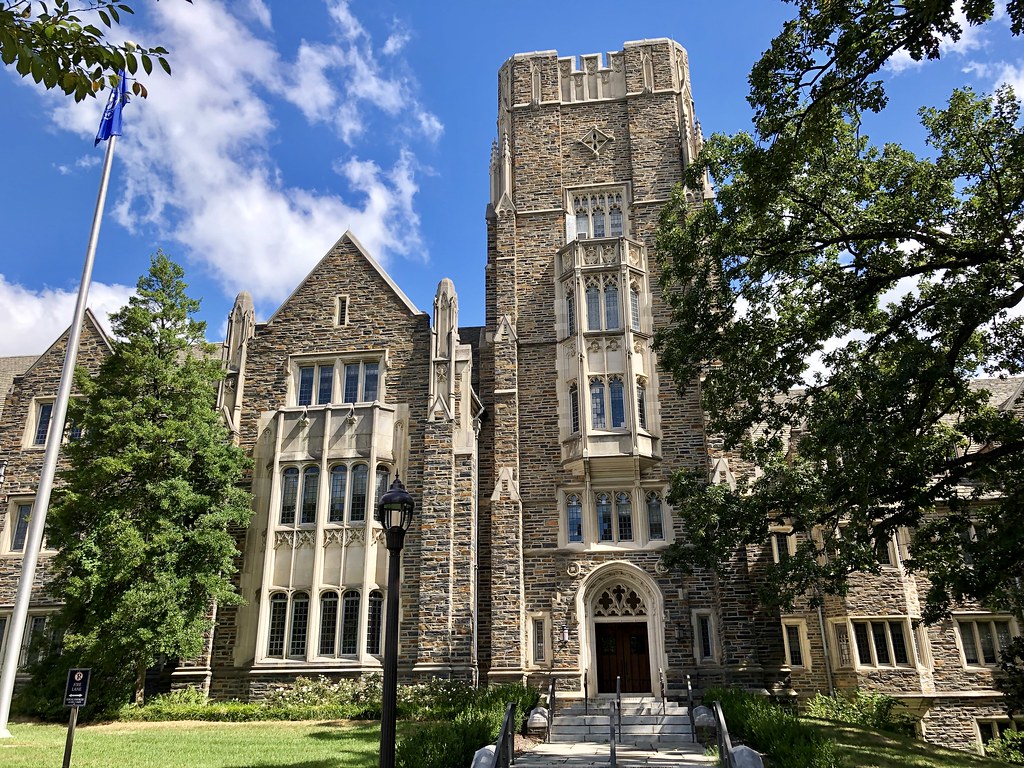Duke Graduate Students Join National Labor Movement

Image from Creative Commons
On Sunday, Aug. 20, 2023, graduate students at Duke University voted to unionize. They did so for better pay, better protection for international students and better healthcare.
The university had previously argued students “weren’t considered employees” in an attempt to block a prior unionization vote in 2017, which ultimately ended up failing.
Despite this, the graduate students still have precedent on their side from a 2016 National Labor Relations Board ruling, stating “graduate students at Columbia University are employees with the right to collective bargaining.”
With the backing of this ruling, the latest election gave students a decisive victory, with a 1,000 to 131 pro-unionization vote, or 88 percent in favor.
Recently, graduate student workers in other areas of the country have successfully voted to unionize as well, including Stanford University, University of Southern California, University of Minnesota, Northwestern University and University of Chicago.
Data shows that “in the past 10 years, there has been more than a 50-percent growth in the unionization of graduate assistants and research assistants.” Additionally, graduate student workers at the University of Alaska “took a step to form the state’s first student worker union” this month.
With the wave of students working for colleges and universities, the possibility of forming unions is not just limited to graduate students either. Even RResident Advisors at the University of Pennsylvania are holding a unionization vote later this fall.
According to the Duke Grad Union website, students are asking for a minimum stipend of $40,000 per year which gets adjusted to keep up with changes in the cost of living as well as inflation.
Inadequate pay is the underlying cause of several of the issues faced by graduate students. Many of them work long hours as research assistants at their universities, not allowing much time for a second job on top of their studies, with some graduate students in North Carolina receiving minimum stipends ranging from “$7,000 to $18,000.”
It is particularly hard for international students, who make up approximately 40 percent of Duke’s Ph.D. students, to receive adequate pay. This is because international students “are prohibited from taking on other work while in the U.S. on a student visa.” As the cost of living increases in general, it can be difficult for student workers to make ends meet.
Policy Watch, a nonprofit that focuses on state and local issues in North Carolina, reached out to graduate students in the state and found that many who rely on food pantries, put off much-needed healthcare or move farther away from their universities after significant and unexpected rent increases do so due to low stipends.
Duke student workers are also requesting for better healthcare, including improved dental, a third party to handle grievances, free tax advice for all graduate students, office space for every graduate student, a stipend that covers summers and a stipend to assist graduate students in moving.
Students across the country are echoing the reasons voiced by Duke’s students. Progress has been made at various other universities due to student workers organizing on the fronts. One win for graduate student workers came when the University of Pennsylvania announced that it will raise its minimum Ph.D. stipend to $38,000.
Another win followed after a tumultuous fight, which included a strike, at Temple University, in which the university ultimately agreed to a ratified contract. Included in their contract is an agreement to pay for part of the healthcare insurance subsidies of graduate students’ dependents. The university also increased the minimum stipend to $24,000 per year, which will go to $27,000 when the contract reaches its fourth year.
Additionally, following a grad student strike in the University of California system, “graduate teaching assistants will soon each receive a minimum of $34,000 for part-time work, and postdocs will each receive a minimum of $70,000 for full-time work.”
The election victory celebrated by Duke student workers is especially impactful considering that, historically, it is more difficult to form unions in the South. North Carolina, where Duke is located, has the “second lowest unionization rate in the country”, following only South Carolina. The Duke win makes it the “first graduate union at a private university in the South” and makes the Service Employees International Union, which will be representing Duke, “oone of the largest unions in North Carolina.”
According to North Carolina state law, while students at private universities, such as Duke, can petition the National Labor Relations Board to unionize, students at public universities in the state cannot. This is because private employees’ rights to unionize are regulated by the National Labor Relations Board, but for public employees their collective bargaining rights are decided by state governments.
North Carolina is a “right to work” state, meaning that “no individual can be forced as a condition of employment to join or pay dues or fees to a labor union.” Under North Carolina law, it is “illegal for city, county and state workers to collectively bargain.” These laws make it more difficult for unions to form in the state because while public employees can “organize and join employee associations,” they cannot negotiate contracts with their employers.
Despite the difficulties in organizing, particularly in the South, workers all over the country are attempting to do so more and more.
Going forward, the Duke Graduate Student Union hopes to soon begin collective bargaining negotiations with university leaders in order to get their first contract.
- Categories: